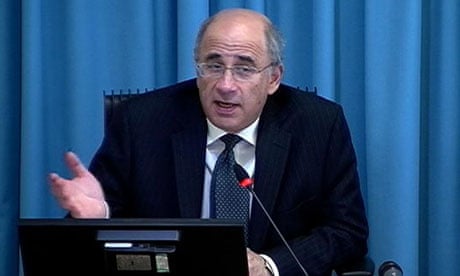Debates about media regulation will become fiercer when Lord Justice Leveson reports next week. The partisans of self-regulation will accuse its opponents of endangering press freedom. The advocates of regulation with a statutory basis will maintain that self-regulation is self-interested regulation. Arguments about how to protect a free press assume that everyone knows what a free press is – yet that is where the real disagreements lie. These can't be settled by appealing to the right to freedom of expression, which is not unconditional. Article 10.ii of the European convention on human rights lays down that the press may be regulated "in the interests of national security, territorial integrity or public safety, for the prevention of disorder or crime, for the protection of health or morals, for the protection of the reputation or rights of others, for preventing the disclosure of information received in confidence, or for maintaining the authority and impartiality of the judiciary". There are lots of acceptable and accepted ways of regulating the media, including laws against defamation, requirements for truth in advertising, data protection and intellectual property law. Press freedom, as is often said and often forgotten, is freedom within the law.
But this tells us nothing about what the law should be. For that, we have to consider why we need press freedom. There are three classical arguments. The first, ever popular, appropriates John Stuart Mill's reasons for protecting individuals' rights of self-expression, provided it is harmless. But the media are not selves in the relevant sense, and are in the business of communication, rather than self-expression. The second is the venerable argument appealing to the needs of truth-seeking: it is too narrow, since it is silent about protecting media content where truth is not the issue (for instance, fiction, horoscopes). The most impressive argument is that our social, cultural and political life needs media communication that is not only accessible and intelligible but can be assessed for its reliability and provenance. And yet, parts of the media do too little to make their communication assessable.
Regulation to make media communication assessable does not work by regulation of content, and does not permit censorship. It would require only that the media use processes that good journalism has long used but other journalism ignores. Communication is assessable only if audiences get the information they need about the evidence, the interested parties and funding behind media communication. It is reasonable to require the media to be open about their processes – as they often demand of others.
First, audiences need to know who paid for which content. Is a press release masquerading as reporting? Is consumer journalism funded by those whose products are reviewed? Has content been placed by the agents of celebrities? What's the point of distinguishing advertisements if other content is disguised advertisement?
Second, they need to know if payments flow from the media to informants (or misinformants), because the fact that money changes hands is relevant to assessing stories.
Third, openness about the interests of owners, editors, programme-makers and journalists is needed. The media often demand transparency of those controlling and working for other powerful organisations, but have been shy about transparency for themselves. This is particularly important for financial and property journalism, and comment and campaigning journalism, which cannot be assessed without knowing both the financial interests and the political and other commitments of owners and editors, journalists and programme-makers.
Fourth, audiences need a systematic approach to correcting errors. Parts of the media take this seriously, parts do not. The practice both helps those who are misrepresented, and helps audiences to assess reliability.
Finally, there must be better information about evidence and sources. The fact that sources may have to be protected in some cases does not mean that this is needed in all cases. There is a good case for a tightly drawn public interest exemption that allows sources to be kept confidential for genuine investigative journalism dealing with matters of genuine public interest.
But permitting unrestricted practices of hiding sources encourages journalism that is lazy, even corrupt, and leaves readers, listeners and viewers unable to assess what is claimed – which is why the Leveson inquiry was established. Without a default assumption that the media will provide evidence for their claims and indications of their sources, audiences cannot tell if there is any source, let alone a reliable one, behind a "story".
This was written in a personal capacity
